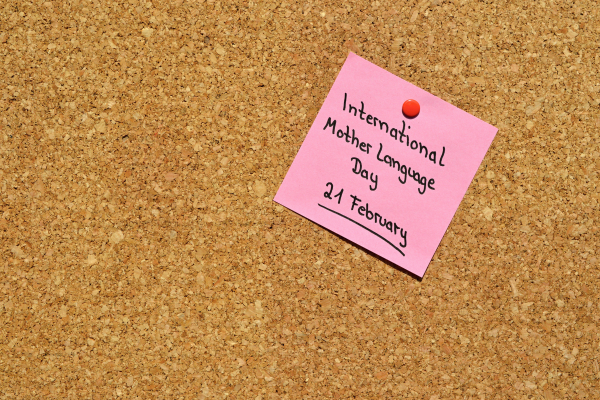International Mother Language Day: 21 February
Source : Qld Sri Lankan Newsletter – Dæhæna – February 2024
International Mother Language Day is observed annually on February 21. The first observance was organized by UNESCO as a celebration of linguistic and cultural diversity. There are over 7,000 languages spoken in the world — this is a large number considering that some languages are better documented and more spoken than others. Many ethnic languages, some of which are still spoken by small groups today, will most likely be extinct in a few decades. This is why International Mother Language Day is so important, as it is part of a larger initiative to revive many communities’ linguistic heritage.
History of Mother Language Day
Image Source : bdlearn
UNESCO first established International Mother Language in 1999. The first inaugural celebration was held in 2000. This annual commemoration began as a tribute to the Bengali Language Movement, which sought to recognize Bengali as the official language of modern-day Bangladesh. Historically, this region was considered part of East Pakistan, and it had large Bengali communities with a distinctive language and culture. The plight of the Bengali language is representative of many similar ones faced by small linguistic communities around the world.
The Bengali movement’s plight can most likely be traced back to the establishment of Pakistan in 1947. The Bengali Language Movement began in East Pakistan’s Bengali communities and gained prominence in the early 1950s. To gain official recognition for their language, the movement held public meetings and rallies. In 1952, police opened fire on the Bengali Language Movement’s mass procession march. Several people were killed, and hundreds more were injured. The day of this incident was to be commemorated by Bengalis as a national holiday.
This story later inspired the United Nations to designate February 21 as International Mother Language Day. The U.N. initiative’s goal is to save the world’s languages from extinction. Since 2000, every international observance has had a theme. Each year’s celebration tries to add new elements to educational efforts to preserve indigenous languages and promote language learning. As a result, the celebration of the Bengali Language Movement has become an international phenomenon that honours languages all over the world.
Multilingual Education – A Necessity to Transform
Image Source : facebook
Education Globally 40 per cent of the population does not have access to an education in a language they speak or understand. But progress is being made in multilingual education with growing understanding of its importance, particularly in early schooling, and more commitment to its development in public life.
International Mother Language Day recognizes that languages and multilingualism can advance inclusion, and the Sustainable Development Goals’ focus on leaving no one behind. UNESCO encourages and promotes multilingual education based on mother tongue or first language. It is a type of education that begins in the language that the learner masters most and then gradually introduces other languages. This approach enables learners whose mother tongue is different from the language of instruction to bridge the gap between home and school, to discover the school environment in a familiar language, and thus, learn better.
Multilingualism contributes to the development of inclusive societies that allow multiple cultures, worldviews and knowledge systems to coexist and cross-fertilize. The theme of the 2023 International Mother Language Day was “Multilingual education – a necessity to transform education”. This aligns with recommendations made during the Transforming Education Summit, where an emphasis was also placed on Indigenous people’s education and languages. Multilingual education based on mother-tongue facilitates access to and inclusion in learning for population groups that speak non-dominant languages, languages of minority groups and indigenous languages.
Courtesy: https://www.un.org/en/observances/mother-language-day, https://nationaltoday.com/language-day/









